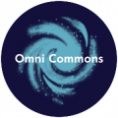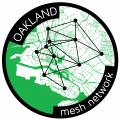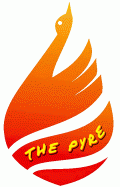we’re all forsaking our former forms-
however, every slip-sweet beautiful now is tethered
to the entwined snakes of memory’s web’d pathways,
though we stretch toward the intangible HOPE of future connection,
dreams crafted out of our utopian revisions,
ideal forms informed by the matrix of experiences re-explored,
re-interpreted, and
interpellated.
|
|||
|
“The city is not a concrete jungle, it’s a human zoo.” Soaking up the sunshine this weekend, I perched with a friend on the steps of Union Square. Nearby, a group of attractive young white kids with brightly colored hair spun poi and hula-hooped in fashionable earthy garb, crafting a performative stage at the foot of the steps where dozens of people sat. I watched and wondered, as I always do, at the seemingly innate enjoyment of judging gazes, small envies, unsubtle desires, attentive eyes consuming their brightly colored shimmying hips and tanned, fluid limbs. I’m at a loss for how to go about reclaiming a lifestyle co-opted by childish style tribes, recuperated and sold back in the tone of the “underground.” But as Kurt Vonnegut says, so it goes… A man holding a sign ranted loudly about the perils of nanotechnology, drawing a small cluster of avid listeners. My friend attended to her Seed Magazine, which highlighted the contemporary debate on the issue. She commented on the young man giving out free hugs while simultaneously strutting about in a shirt emblazoned with the words “made of poison.” I casually struck up a conversation with the man chillin’ to my left, complimenting the intricate detail of the colorful psychedelic prints splayed out around him. Averting his eyes, he described his process as one of “adding to” pre-existing images – at this, I raised an eyebrow and smirked at the psychedelic elephant in my hands. Smoothly, he then pulled out a translucent pair of prints and moved them slowly across one another, blurring and goo-ifying a gigantic block print of the year 2012. Wince. Gradually, we inserted ourselves into another nearby spectacle that had drawn a dense crowd- two lithe black men dressed in bright, skin-tight animal print bodysuits engaged in a wildly contortionist dance, bizarre twistings of bodily form. For their grand finale, one leapt effortlessly over the heads of half a dozen “volunteers.” Throughout, they called for the audience to give money for their endeavors, and at the end passed three large buckets around. Embarrassed, I avoided the buckets, reaching a hand into my pocket to ensure my four dollar bills were still milling about. The area where I run at the Chelsea Piers has finally finished construction (or at least a substantial portion of it), and is now allowing people to meander along the shiny new walkways accented by bright green grass and surrounded by trees and water. It is beautiful! Tonight, I rambled to the corner market for a beer. It was around midnight, and I found myself gazing in at the bars closing down. Bartenders, cooks and barbacks gathered in small pockets just beyond accessibility, cocooned in the inner glow of afterhours. There was a sense of belonging in these fractured glances, and in the smooth strides of a man who zipped down 19th street on rollerblades while chatting with his bluetooth’d self Each of these sightings registered a pang of longing that sung through my heart. (I recalled, as I often do, a memory of a rainstorm at dawn several years ago, my green bedroom syrupy and sunlit and full of friends sprawled out on mattresses and in chairs, long bouts of listening interspersed with sleepy jokes and lazy laughter. Joe had set up a feedback contraption that captured the sounds of the falling rain and catapulted them back into the room. Drenched in sound and in the love of adopted family close at hand, I remember falling asleep with the acute sense that I had come full circle back to my childhood, to the warmth of s’more-infused campfires and sunday night baths with my siblings.) Then I remembered that sunlit day, which proceeded into an evening of laughter, ranting, and friendly camaraderie with a friend I’d never gotten to know well one-on-one. There was a point where I found myself persuading her to look at San Diego, to come and make a community of smart, down-to-earth compadres. It occurred to me just how necessary such dreams had become, lost in the sea of anomie that is new york city. This was all only ever temporary, a sacrifice for love. Never inclined toward urban environments, I resolved not to become too attached to this city – just as I’d resolved, 5 years ago, not to fall in love during the year I was abroad in Denmark. That pact failed back then – of course during the last two months of my stay, with nothing to stand in the way of letting go – I fell in love with a Danish boy destined for the Danish military life, just as I was destined for the American collegiate life. I’ve no regrets. How could I? And so I’ve no regrets for my renewed mission: to love this porous city for all its flaws and elegant superstructure, to capture this life so rich with culture and madness, and finally to know what it means to escape the zoo of my own accord. Narcissus, a Greek god, spurned the advances of the goddess Echo (or so one version of the story goes). As she faded away in a lonely spot, her final whispery prayers for vengeance were overheard by the goddess Nemesis. As punishment, Narcissus was doomed to fall in love with his own reflection. Pining for his own image in a pool of water, he died and changed into the flower that would come to be called narcissus. I recently realized that I have all but completely shifted my writing online, into the public domain. Why bother to hold onto those random musings and discoveries when you can tweet them, and not care who’s listening? I feel something like a civic responsibility. Or perhaps it could be captioned: “Subversivity and Adversity: Fuck!Shit! Oh Woe Is Me.” It is conversation that is key, dialogues that enable challenges to the American ideology of individualism that has long blinded us to the power of empathy, listening, and cultural sensitivity: Raul Castro, the President of Cuba, recently met with US lawmakers and called for direct negotiations. The meeting revealed to the Americans an earnest desire for dialogue:
Also this past week, a San Francisco Bay Area event for Burners dubbed “Go Native!” was canceled in the face of virulent furor by Native Americans across the country. The East Bay Express reports:
The Visionary Village leaders quickly complied with the Native Americans’ demand for cancellation and request for dialogue. It was to be a lesson in effective conflict resolution, though certainly tensions remain: On the night of the event, a handful of Burners were lectured to for four hours on the importance of cultural sensitivity, appropriation, and outright theft. The Burners were apologetic and conciliatory and willing to bridge the rifts between their cultures. But, still – robbed of one’s culture twice over. Blindly reproducing the hierarchies we’d once imposed in another iteration- one more ignorant, autosexual, narcissistic- “Power is not caring who’s listening,” a quote from Bernie Hogan that found its way to my Twitter feed (and certainly applies to Twitter)- but it is also caring who’s listening! Not necessarily in the paranoid, conspiratorial sense (though sometimes they really are out to get you), but rather in the empathetic sense. The knife is a technology that can be used to cut food, or used to cut people. Beware of spending too much time in front of the mirror: In search of strokes we become addicts blindly drawn to the glow. There are so many DIFFERENT kinds of people, paradigms, possibilities just beyond the realm of comfort and habit, yet we continue to be drawn to that which confirms and reaffirms what we already know. The medium is the message: a television show may compress time and space in such a way as to provide a limited, inauthentic experience; conversely, it could play with time and space in a wiggly manner. Perhaps this explains my wholesale absorption by television involving time travel (Heroes and Lost, specifically), or shows that sweep me into laughter to such a hilarious extent that i forget to fret on what’s been done or what’s to come ahead. To escape the self is at once ecstatic and terrifying. Victor Turner suggests that “liminality is frequently likened to death, to being in the womb, to invisibility, to darkness, to bisexuality, to the wilderness, and to an eclipse of the sun or moon” (1986: 95). Drawn in to the present reality, which always exists between fixed points, we are freed from these imagined divisions between nature and culture, self and other, past and future.
The medium is the message: erasure of the glow, as all journeys exist in the mind alone. There are so many stories to be told, connections to be made, and so many possible paths for the telling, paths as yet unexplored. Better to be a pansexual than an autosexual, to be weaving whimsical loops within the whole. Last week, a student in the Cyberspace Ethnography course taught by Maximilian Forte at Concordia University sent me some questions for a class presentation on The Virtual Campfire. Below are some of my reflections on the process of conducting virtual fieldwork, the advantages and disadvantages of digital ethnography, issues of immersion and techno-utopianism, and what it means to be a “digital native” studying and writing about the experiences of those grappling with the uncomfortable process of integrating new communication technologies into everyday life.
Among those who have an understanding of what an ethnography is – a minority even among the highly educated – I would say most definitely. It’s certainly become well-known among the digerati thanks to the highly public work of, for instance, Mike Wesch at KSU (a professor of anthropology currently working on an ethnography of YouTube) and danah boyd (not “technically” an anthropologist, but a staunch advocate of ethnography via her work on youth and social networking sites). In my research with danah through the Berkman Center, which focuses on pro-self-harm websites and online communities, it’s become clear to me that ethnography is a critically important methodology in promoting empathetic understanding of youth online practices and combating the moral panic that’s driving Internet censorship campaigns and related policy issues. Unfortunately, quantitative data tends to trump qualitative research when it comes to policy. I had to take statistics twice because I hated it so much I dropped not only the class, but my second major in psychology. I’m glad I came back to it, because in the world of research it’s important to know how to critically analyze a wide range of methodologies and the biases inherent in them. Anthropology as a discipline tends to be overly self-conscious, while psychology is just the opposite. Combining the confidence of quantitative psychology studies with the sensitivity of ethnographic accounts is truly empowering
Basically, I make a habit out of interpreting the human interactions around me as though they were originating from a bunch of crazy space monkeys. Then the whole cyborg element doesn’t seem so much of a stretch. But seriously, as I mentioned in my thesis one of the most problematic aspects of virtual ethnography is the voyeuristic nature of ‘lurking’- being able to watch without being seen. I attempted to compensate for my voyeurism by participating fully in the communities I was researching, skirting along that longstanding anthropological borderline between participation and observation. People reveal a lot online, which is one of the greatest advantages of doing virtual fieldwork. Inhibitions are lowered, because social networking sites induce an illusion of privacy. One of my greatest difficulties was making distinctions between information intended to be publicly accessible and that which should be kept confidential. Many of the advantages of cyberethnography are also disadvantageous: the potential for invisibility, while it eliminates the issue of “contaminating” the habitus in introducing a prominent gaze, may be ethically suspect; the absence of face-to-face interaction may decrease inhibitions, but it also frequently results in misinterpretation; immersion in internet culture may connect one to a wider world of information and interesting individuals, but it can also be addictive and painfully isolating at times. There is the also the issue of the distance necessary for writing a quality ethnography. Most traditional anthropologists do fieldwork in a foreign land, then return home to reflect upon their experiences. With my virtual ethnography, the distinctions between fieldsite and writing collapsed entirely. Like most recent college students, I’d developed the habit of procrastinating from writing papers by regularly navigating to Facebook. So, I would log in to Facebook and notice so many things (clearly), and of course the technology is always changing rapidly. At a certain point, my advisor had to tell me to stop conducting fieldwork, and make a clear transition to writing and reflection. That was hard.
When I first got into anthropology, I was taking Swahili classes and planning to travel to Zanzibar for field research. Having been an exchange student in Denmark the year prior to starting college, I was acutely aware of just how disorienting culture shock can be, and how incredibly difficult it is to understand the subtleties of a new language. It occurred to me at some point that a single semester of fieldwork in Zanzibar would hardly qualify me to write authoritatively about the subject – it would hardly qualify me as much more than a tourist, really. As I delved deeper into my studies, I found myself drawn to postmodern theory and autoethnography. Having been an awkward outsider for so long, the intimate community I’d begun building at Wesleyan was extremely important to me, and given how quickly college passes by, I didn’t want to miss a moment of the story we were writing together. When social networking sites exploded in popularity around 2004-2005, right as I was becoming obsessed with anthropology, they naturally converged. While I’d long considered my white, middle-class American background to be boringly average, it became apparent to me that my immersion in various cybercultures since adolescence granted me exactly the kind of authority I needed to deeply explore the increasing prevalence of social media in the everyday lives of those around me. As my friends and interviewees struggled to articulate the pleasures and conflicts they experienced through this new medium, I found myself drawing from my extensive experience of virtual life- making comparisons, filling in the gaps, elucidating connections. Comfortably connected to my campus community, friends and strangers alike came to me when they had a story to share about Facebook or MySpace. In the beginning, there was much more of a stigma surrounding social networking – in group conversations, mentioning you’d heard about some piece of gossip from Facebook might’ve garnered some teasing, for instance. In my interviews, people expressed feelings and told stories they’d never felt comfortable expressing to others out of fear of being labeled narcissistic or shallow. It helped that I made it clear how immersed I was in online sociality and shared my own embarrassing tales. Being eager to talk about Facebook back in the day was pretty lame. They could be lame with me. 😉 So in sum – I maybe had *too* good of a grasp of the language, being so utterly immersed. When I wrote my first paper on Facebook back in 2005, my professor pointed out the need to define terms and practices I took to be self-explanatory. Rather than attempting to master the linguistic subtleties of my informants, the greatest linguistic challenge in writing this ethnography was explicating such subtleties so that readers who’d never been to these sites could understand them – hence the need for a glossary.
It’s my belief that the heart of human connection is captured by just this metaphor – the warmth and intimacy of kindred spirits, nurtured by an ethic of mutual aid in the viscerality* of shared experiences. My view on the matter is certainly idyllic, for in the face of increasing disenchantment with the world it’s the duty of the idealist to work for its reenchantment. To be entirely honest, it was only in the last two months of writing that I conjured up the virtual campfire metaphor, and I wish I’d thought of it sooner as there are so many ways in which it can be applied to this topic. The idyllic vision evoked by the “campfire” is more likely to stick with readers, but it’s important to keep in mind that while the warmth and light of connectivity is what draws us to gather around these new media forms, it is also what distracts us from the wolves watching in the surrounding wood (marketers, predators, identity thieves), the stars above our head (the universe beyond our “egoverses”), and the park rangers on the prowl for firestarters and underage drinking (‘net censorship advocates and moral panic propagators). Basically, the internet is no more and no less than the people and ideas it’s made up of, which are not so very different from what humankind had been and thought of before it was invented – long before. Dispelling the myth that technology has “effects” on human experience is definitely what I was seeking to convey in writing this ethnography, though the degree to which I was successful in that endeavor is certainly debatable 🙂 *Apparently ‘viscerality’ is not a word. It is now 😛
These are unpredictable times and I’m no futurist, but the forecast looks good for more mobile, local networking technologies blending in with pre-existing business and community structures. Increasing integration of these technologies into our daily lives as we adapt to their existence – the Singularity approacheth! But who’s to know what technology we’ll think up next??
An empathetic portrayal of the stories and everyday practices of a group of people, balancing one’s own experiences with the perspective of an alien from outer space – see ‘Body Ritual Among the Nacirema‘ for an amusing addendum to that last point.
the words just tumbled out of my mouth: “you have no soul, you cold-hearted machine!” i may as well have called him a monster, an abnegation of his very humanity. -yet it occurred to me, instantly, that i was contradicting the very essence of my research: that machines indeed bely an essence of warmth, a firelight (however virtual)- indeed, a campfire around which I’d been gathering with my friends (both “real-life” and fictive) for years. we humans are merely creatures of habit, adverse to change that outstretches our imaginations.
In the spaces between two poles of prevailing ideology- the utopian discourses of society battling the forces of discord and chaostrophe- there is a middle ground, more subtle. Here is the exploration of human potential, animal language, the deep sea mysteries of the mind. Once in awhile, what is discovered uncovers the stories and dreams of a forgotten time and people. Who are to be the ancient storytellers of tomorrow? What traces will we leave behind? I once stayed up ’til dawn crying in front of my computer monitor, having spent the night exploring the MySpace profiles of the dead. My first romantic love occurred online, faceless. These things float through my mind, reminding me: Immersion. Who is to be monster? Since I last wrote, I’ve mourned a rejection from my top choice program (Stanford’s Modern Thought & Literature), spent a few nights writhing feverishly from a sudden-onset flu bug, celebrated an acceptance from UC San Diego’s Communication program, and (with no small degree of assistance from my amazing supertrooper parents) moved the entirety of our belongings from Bushwick into Chelsea. Burrowed cozily in the heart of this giant clusterfuck called Manhattan (or as one Geo Geller calls it “Madhattan”), I have too much work for what is undoubtedly too little pay but I’ve been keeping my worries away through what has fast become my favorite pasttime: gazing at maps and photos of San Diego while simultaneously checking current weather conditions in the area. At the time of this writing, it is 69 degrees and partly cloudy.
Now to catch up on that low-to-non-paying research and writing work that I so dearly love as to consider making the sacrifice of spending the next 5 years continuing it in San Diego… This past month has been marked by:
At least I am not alone in my misfortune – just another victim of this drowning economy. On the plus side, the current climate has shattered the false gods of individualism and consumer culture, revealing the matrix of proximate connections and interrelationships that enables our survival. As we continue to weave this web of neotribes, those markers of identity that once defined our place in societal structures (be they institutionalized or “alternative”) become increasingly meaningless. Trust, authenticity and reciprocity, those factors which are paramount to the success of online communities (truly the “network of all networks” when I speak of neotribalism), have never been so essential to my survival as they are today. It’s been an enormously eye-opening experience, and in the process I’ve learned a few things:
In an effort to meet the educational needs of its considerable population (550 million and growing), researchers and computer scientists in India have designed a laptop that costs $20 per unit (expected to fall). This model vastly undercuts the much-hyped (but decidedly problematized) $100 laptop designed by researchers at MIT. The secretary of secondary and higher education, R.P. Agrawal, expects these laptops to be made commercially available in six months, though no commercial partnership has yet been formed. The design features 2GB of ram and wireless connectivity- barely room for a Linux operating system, let alone the storage of any personal data. As such, all activity through these machines would have to occur on the web, which has some discomforting connotations. Nevertheless, this is one of the most inspirational bits of news I’ve heard in awhile, even in this most inspirational of times (technologically, politically, and memetically…). I’m hoping this gets supported by some big-time philanthropist, and is spread quickly to the areas of the world that need it most. I think we’ll be needing to develop new platforms and volunteers in the area of distance learning. Open, global universities, like that being envisioned by my new friend and colleague Scott MacLeod- though I far prefer wikis to the heavy load of virtual worlds like Second Life. The catch, of course, is participation. How to encourage participation? Wikipedia is a great model, but it’s also an anomaly in the world of wikis. Or maybe I’m just dejected about the fact that the bulk of my new wiki, Webnographers, is likely to continue being edited by me and me alone. Clearly, there is a need for more educational jobs through e-learning- and the more educators we get online, the better off we’ll be. Some financial incentive, O-bama? Of course, India clearly prioritizes advancing technology over acquiring international educators, and as the US increasingly outsources tech jobs to India, this news comes as a quixotic quagmire. A recent expanse of free time has enabled me to finally get to work on a project that’s long been brewing in the back of my brain. Webnographers.org is now up and running: a communal wiki for the sharing of ideas, tools, and resources pertaining to virtual ethnography. Currently, it is organized in the following manner:
There isn’t a ton up there yet, as the past few days have been spent primarily wrestling with the MediaWiki software (which is fabulous, but I’m no programmer). This is the first official invitation to my colleagues working in the realm of internet research to join in the fray. Your participation would be very much appreciated- starting with a Bio page, if you wish. It would be fabulous if together we could create a viable compendium of resources for current and future webnographers! Check it out at Webnographers.org! |
|||
|
Copyright © 2026 webnography - All Rights Reserved Powered by WordPress & Atahualpa |
|||







